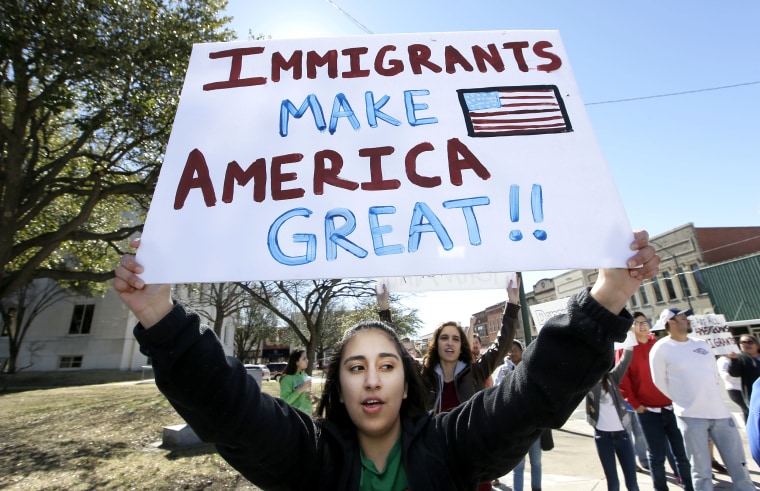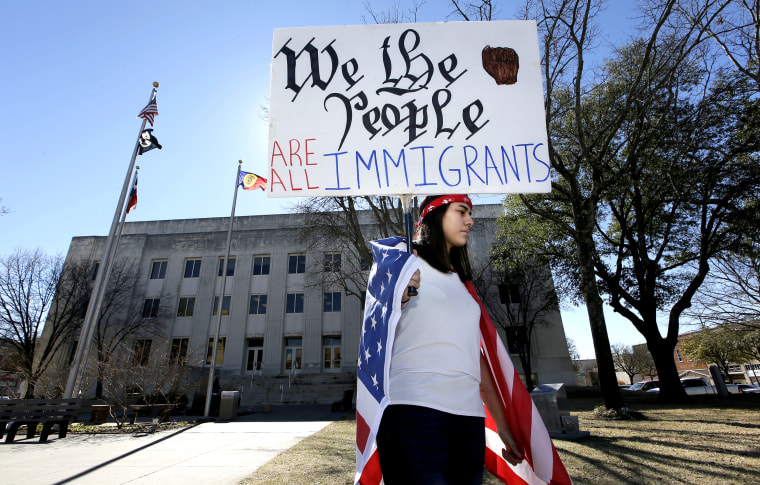Latino high school students in Rhode Island and Texas shared the same kind of anxiety over the possible immigration arrests or detentions of loved ones — even though the states' levels of enforcement vary widely—according to a study released Tuesday.
"This study documents widespread fear of immigration enforcement and high levels of anxiety, depression and PTSD symptoms across a sample of Latino high school students — levels that were high for youth born in the United States as well as those born outside the country," the authors said about the findings, released by the Migration Policy Institute with research from the University of Houston and Rhode Island College.
Over half of the Latino adolescents surveyed reported symptoms of mental health conditions that were significant enough to warrant treatment.
Researchers surveyed students in five high schools in Harris County, Texas, which had more Immigration and Customs Enforcement arrests than any other county in the country in 2018. Texas law bars local law enforcement agencies from refusing to work with federal immigration officials.
The researchers also surveyed students in six high schools in Rhode Island, where there is relatively low ICE activity and local law enforcement is restricted from cooperating with federal officials. Surveys were conducted during the 2018-19 school year.

According to the report, 59 percent of the students feared that someone close to them would be arrested and deported and 56 percent knew someone who has been deported.
A greater share of Harris County's students, 67 percent, feared that someone close to them would be deported, compared to 52 percent of the Rhode Island students.
Download the NBC News app for breaking news and politics
One-third of all students said they were afraid that they would be deported themselves, including 12 percent of U.S.-born students. In addition, a third said they had made behavioral changes, such as not driving or forgoing religious services, for fear that they'd be deported.
Almost 6 in 10 experience PTSD
The researchers said adolescence is a critical period in life when young people develop social, cultural and political identities and "become aware of how society's structures and institutions can affect them and their families."
"Latinos are about one-quarter of U.S. high school students and they are expected to account for almost all U.S. labor force growth in coming decades," the report says. "Their mental health and school engagement will influence their future productivity and the future strength of the U.S. economy, as studies have shown young adults with severe mental-health conditions experience difficulties in the labor market later in life."
More than half of the students reported mental health conditions. Two-thirds met the clinical threshold for anxiety, 58 percent for post-traumatic stress disorder, or PTSD, and 55 percent for depression, the researchers found.
The students in Rhode Island were as likely to report symptoms of mental health issues as those in Harris County. Researchers said the result and similar findings show that state and local policies limiting cooperation with ICE may not entirely shield youth from related mental health conditions.
The researchers noted that the students were facing other issues that affected their mental health, including economic hardship, traumatic experiences and discrimination. At the same time, many students exhibited resilience and spirituality. Family, sports and school engagement could help mitigate their trauma and other stressors, the researchers said.
A number of the schools in the study were actively trying to address their students' fears and provide help; their strategies are discussed in the study.
Follow NBC Latino on Facebook, Twitter and Instagram.


